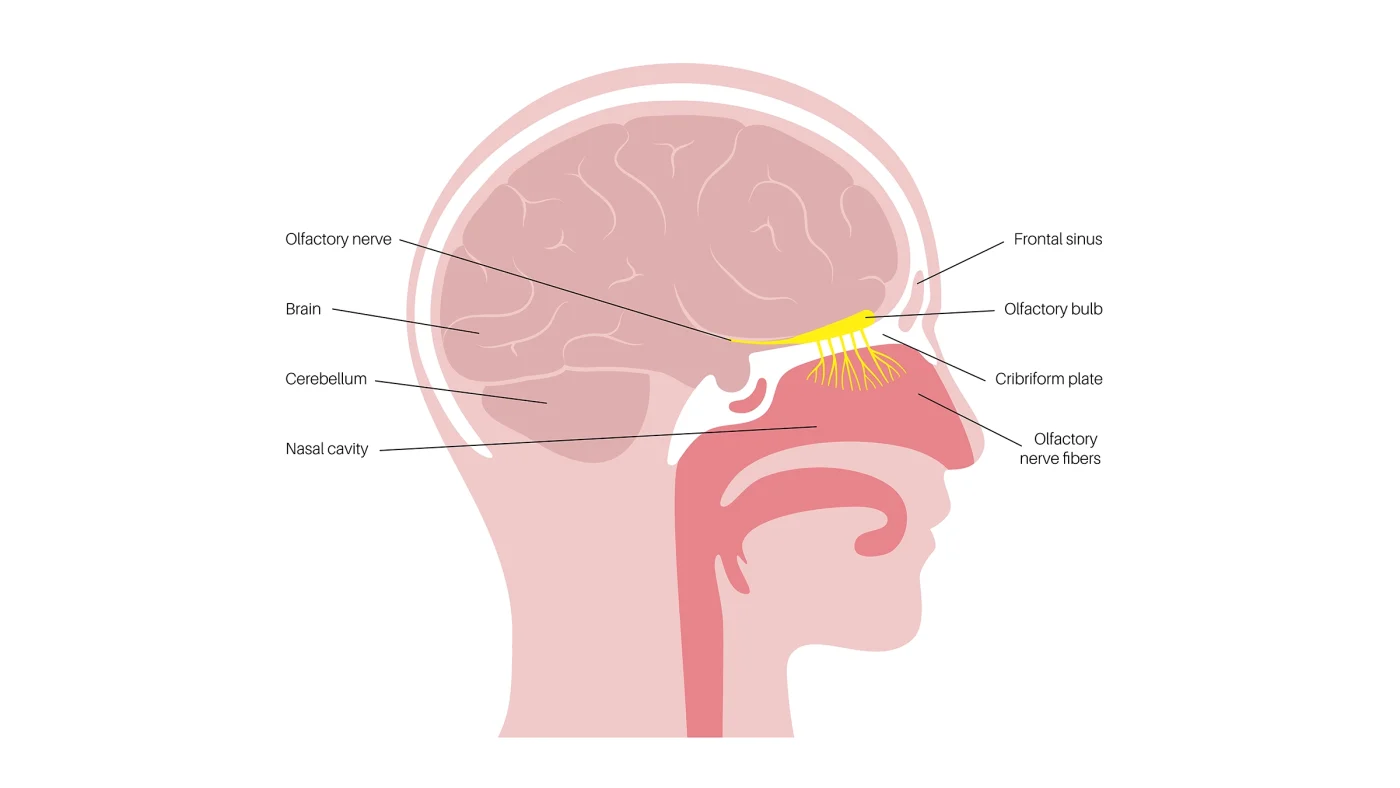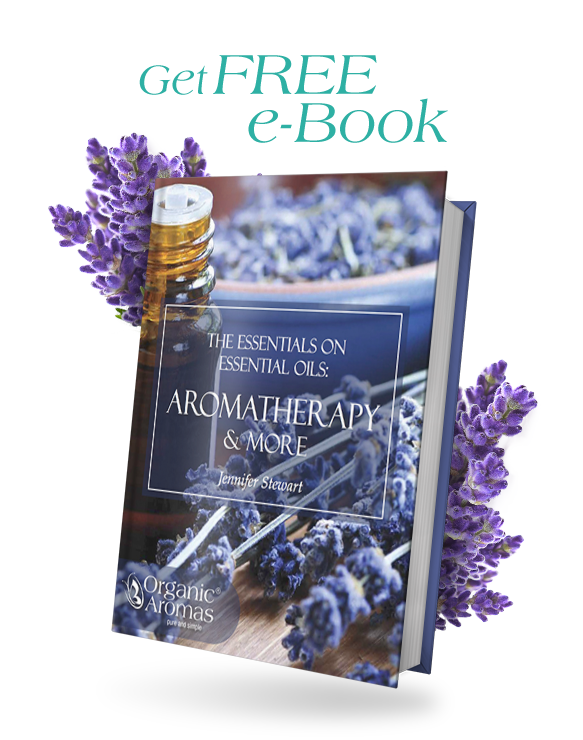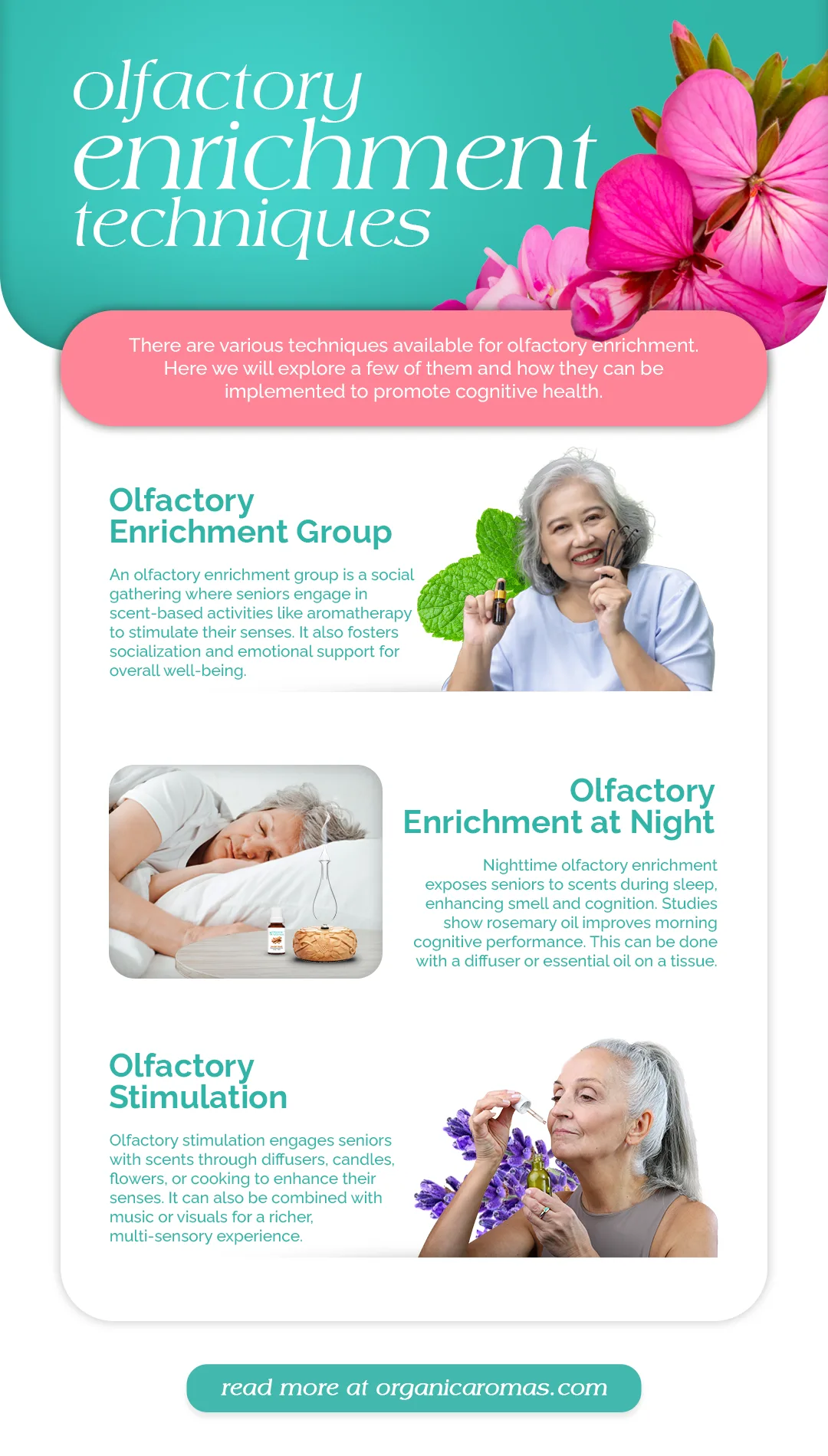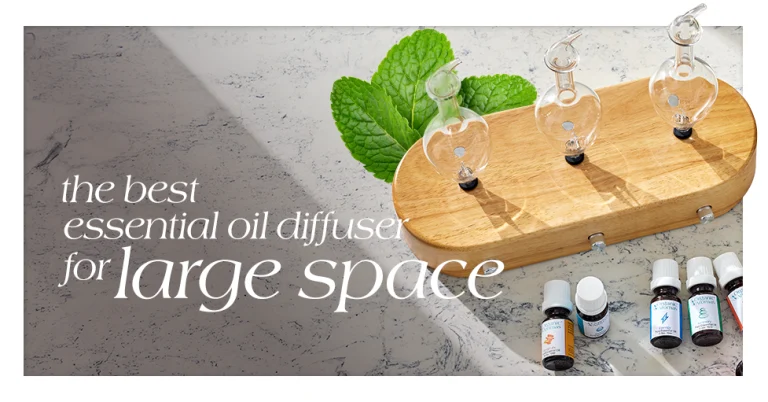Essential Oils for Memory Loss: Olfactory Enrichment for Seniors
Memory loss and cognitive impairment can be a challenging reality for many seniors. While there are conventional treatments available, such as medication and cognitive therapy, natural and therapeutic alternatives have shown promise in promoting cognitive health. In recent years, there has been a growing interest in the potential benefits of essential oils for memory loss and olfactory enrichment for seniors.
Research has suggested that the olfactory system plays a vital role in cognitive function, including memory. By stimulating the olfactory system through olfactory enrichment, cognitive abilities can potentially be improved. Essential oils have emerged as a promising tool for olfactory stimulation and have been explored for their potential in enhancing cognitive function.
In this article, we will explore the power of essential oils for memory loss and the benefits of olfactory enrichment for seniors. We will examine the science behind olfactory enrichment, the different techniques for achieving it, and how it can potentially help manage aging-related cognitive decline and neurological disorders like Alzheimer’s disease.
Key Takeaways:
- Essential oils have shown promise in promoting cognitive health through olfactory enrichment.
- The olfactory system plays a vital role in cognitive function, including memory.
- Olfactory enrichment involves stimulating the olfactory system to improve cognitive abilities.
- There are various techniques for olfactory enrichment, including olfactory enrichment groups and olfactory stimulation at night.
- Olfactory enrichment can potentially help manage aging-related cognitive decline and neurological disorders like Alzheimer’s disease.
Understanding Memory Loss and Cognitive Impairment
Memory loss and cognitive impairment are common age-related conditions that can affect daily life and cognitive abilities. Memory loss refers to the inability to recall information or events that were previously learned or remembered. Cognitive impairment is a general term used to describe problems with thinking, memory, language, and judgment that are greater than normal age-related changes.
Memory loss and cognitive impairment can occur due to various factors, including brain injury, stroke, neurodegenerative diseases, medication side effects, and chronic health conditions. Aging is also a significant risk factor for memory loss and cognitive impairment.
Individuals experiencing memory loss and cognitive impairment may have difficulty with everyday tasks, such as remembering appointments and names, and experience social isolation and depression.
“According to the Alzheimer’s Association, over 6 million Americans aged 65 and older are living with Alzheimer’s dementia in 2021.”
The Olfactory System and Cognitive Function

The olfactory system, or sense of smell, plays a crucial role in cognitive function. Our ability to identify and classify different scents is closely linked to memory and emotion.
The olfactory system uses specialized receptors to detect odor molecules, which then send signals to the brain to process and interpret the scents. These signals travel through the olfactory bulb, a structure located in the front of the brain, to various regions that are responsible for processing information related to memory, emotion, and cognition.
Studies have shown that impairments in olfactory function are associated with cognitive decline and increased risk of dementia. In addition, olfactory dysfunction may occur as an early marker of neurological disorders such as Alzheimer’s disease.
Therefore, maintaining a healthy olfactory system is important for overall brain health.
The Importance of Olfactory Function in Memory
The olfactory system is closely linked to memory, specifically episodic memory, which involves the ability to remember specific events and experiences.
When we encounter a new smell, the brain forms a link between the scent and the context in which it was experienced. This association is stored in the brain and can be retrieved later when exposed to the same scent, triggering memories and emotions associated with the initial experience.
This process is known as odor-evoked autobiographical memory and has been shown to be more resistant to forgetting than memories triggered by other sensory cues.
Olfactory Function and Overall Brain Health
In addition to memory, the olfactory system also plays a role in other cognitive processes such as attention and decision-making.
Studies have shown that olfactory impairment is associated with a decline in executive function, the set of mental skills that allow us to plan, organize, and complete tasks. This decline may be due to the fact that the olfactory system is interconnected with other regions of the brain responsible for executive function.
Therefore, maintaining a healthy olfactory system through olfactory enrichment techniques may have benefits beyond just memory improvement.
Olfactory Enrichment: An Introduction

Olfactory enrichment is a technique that involves stimulating the olfactory system to improve cognitive and olfactory abilities. By using essential oils and other techniques, seniors can potentially improve their sense of smell and cognitive function.
Olfactory enrichment has gained popularity in recent years as a natural and therapeutic approach to promote brain health. Studies have shown that olfactory stimulation can have positive effects on cognitive abilities, memory, and overall brain function.
The concept of olfactory enrichment is based on the idea that the olfactory system is directly connected to the brain, and that stimulating this system can improve cognitive function.
In the following sections, we will explore the science behind olfactory enrichment and how it can benefit seniors. We will delve into specific techniques and essential oils that can be used for olfactory stimulation, as well as the link between olfactory enrichment and memory improvement.
The Science Behind Olfactory Enrichment
Understanding the science behind olfactory enrichment requires an examination of the brain pathway and neural functioning involved in olfactory system function. The olfactory system consists of the olfactory bulb, olfactory cortex, and other regions of the brain involved in processing olfactory information.
When we inhale an odor, the odorant molecules bind to receptors in the olfactory epithelium, located in the nasal cavity. The receptors send signals to the olfactory bulb, where the information is processed and sent to the olfactory cortex for further processing.
Studies have shown that olfactory information is processed in the same areas of the brain involved in memory, emotion, and cognition. This suggests that olfactory information may play a critical role in these processes.
Table 1: Brain Function
| Brain Areas Involved in Olfactory Processing | Functions |
|---|---|
| Amygdala | Emotion and memory |
| Hippocampus | Memory and learning |
| Orbitofrontal Cortex | Decision-making and evaluation |
Research has also shown that olfactory enrichment can lead to changes in neural functioning. Studies using the Montreal Cognitive Assessment test have found that olfactory stimulation improves performance on cognitive tasks.
“Olfactory stimulation may act either by directly stimulating specific neuronal networks involved in cognition, or by indirectly triggering specific memories and emotions associated with smells.”Overall, the science behind olfactory enrichment suggests that stimulating the olfactory system can have a positive impact on cognitive abilities and enhance overall brain function.

Sign Up to Get Your FREE
e-Book Here…
Olfactory Enrichment Techniques
There are various techniques available for olfactory enrichment. Here we will explore a few of them and how they can be implemented to promote cognitive health.
Olfactory Enrichment Group
An olfactory enrichment group is a social group that meets regularly to engage in olfactory stimulation activities. Seniors can participate in these groups to engage in activities that will help stimulate their olfactory senses, such as aromatherapy or smelling different scents. Participating in a group setting can also provide socialization and emotional support, which is important for overall well-being.
Olfactory Enrichment at Night
Olfactory enrichment at night involves exposing seniors to specific scents while they sleep. This technique has been shown to improve both their olfactory and cognitive abilities. One study found that participants exposed to rosemary oil while they slept experienced improved cognitive performance the following morning compared to those who did not receive the treatment. This technique can be implemented using an aroma diffuser or by placing a few drops of essential oil on a tissue near the senior’s pillow.
Olfactory Stimulation
Olfactory stimulation involves exposing seniors to different scents to stimulate their olfactory senses. This can include using essential oils in a diffuser, smelling different scented candles or flowers, or even cooking with herbs and spices. Olfactory stimulation can also be combined with other sensory activities, such as listening to music or looking at pictures, to create a multi-sensory experience.

Essential Oils for Olfactory Enrichment
Essential oils have shown promise in olfactory enrichment techniques. Specific essential oils can be used to stimulate the olfactory system, promoting cognitive health and memory improvement. Let’s explore some popular essential oils for olfactory stimulation:
Table 2: Olfactory Stimulation
| Essential Oil | Benefits | How to Use |
|---|---|---|
| Lavender | Calming and relaxing, reduces stress and anxiety | Add a few drops to a diffuser, or dilute with a carrier oil and apply topically |
| Peppermint | Increases alertness and focus, boosts energy | Add a few drops to a diffuser, or inhale directly from the bottle |
| Lemon | Uplifting and invigorating, enhances mood and mental clarity | Add a few drops to a diffuser, or dilute with a carrier oil and apply topically |
| Rosemary | Improves memory and concentration, reduces mental fatigue | Add a few drops to a diffuser, or dilute with a carrier oil and apply topically |
It’s important to use high-quality essential oils and follow proper dilution guidelines to avoid adverse skin reactions. Essential oils should always be used with caution, especially around vulnerable populations such as children and pregnant women.
When using essential oils for olfactory enrichment, it’s recommended to rotate different scents to prevent olfactory fatigue and enhance the cognitive benefits.
The Link Between Olfactory Enrichment and Memory Improvement
Several studies have demonstrated the positive impact of olfactory enrichment on memory and cognitive abilities. Olfactory stimulation has been found to improve memory performance in both healthy adults and those with cognitive impairment.
In one study, researchers evaluated the effect of lavender essential oil on cognitive function in healthy participants. The results showed that participants who were exposed to lavender oil had improved working memory and reaction times compared to those who were not exposed to the oil.
Another study examined the impact of a rosemary essential oil on memory performance in individuals with Alzheimer’s disease. The study found that olfactory stimulation with rosemary oil led to significant improvements in cognitive function, particularly in the ability to remember past events.

Join Now and Get a Coupon for 10% Off!
These studies suggest that olfactory enrichment can play a beneficial role in memory improvement and cognitive function, particularly in older adults experiencing age-related cognitive decline.
“Olfactory enrichment has potential as a promising and innovative cognitive intervention for managing cognitive decline in aging populations.” – The Journal of Prevention of Alzheimer’s Disease
Additionally, research has found that olfactory stimulation can enhance overall brain function by increasing neural activity in brain regions associated with memory and perception. This enhanced neural functioning can contribute to improved cognitive abilities and memory performance.
Overall, the evidence suggests that olfactory enrichment has the potential to positively impact cognition, particularly memory improvement, and could be a natural and effective approach to promoting cognitive health in older adults.
Olfactory Enrichment for Aging-Related Cognitive Decline

As we age, it is common to experience a decline in cognitive function. This can manifest in various ways, including forgetfulness, difficulty with problem-solving, and struggles with language. Mild cognitive impairment is a condition that affects some seniors and can lead to more severe forms of cognitive decline, such as dementia.
While there is no cure for these conditions, there are steps that can be taken to manage symptoms and potentially delay their onset. Olfactory enrichment is one approach that shows promise in improving cognitive function in seniors.
Studies have demonstrated that olfactory enrichment can be particularly beneficial for seniors experiencing aging-related cognitive decline. By stimulating the olfactory system, seniors may be able to improve their cognitive abilities and enrich their quality of life.
Managing Dementia Symptoms
Olfactory enrichment may be helpful in managing some of the symptoms of dementia. One study found that the use of essential oils improved agitation, apathy, and other behavioral symptoms in dementia patients.
Additionally, some research suggests that olfactory impairment may be an early sign of dementia. By engaging in olfactory enrichment, seniors may be able to improve their olfactory function and potentially delay or mitigate the onset of dementia.
Delaying Mild Cognitive Impairment
Mild cognitive impairment is a condition that affects some seniors and can lead to more severe forms of cognitive decline, such as dementia. Olfactory enrichment may be able to delay the onset of mild cognitive impairment.
One study found that seniors who engaged in olfactory enrichment activities, such as smelling essential oils, had better cognitive performance compared to those who did not engage in olfactory enrichment.
While more research is needed to fully understand the potential benefits of olfactory enrichment for cognitive decline, the evidence thus far suggests that it is a promising approach for managing symptoms and potentially delaying the onset of cognitive impairment.

Sign Up to Get Your FREE Essential Oils e-Book Here
Olfactory Enrichment and Neurological Disorders
Neurological disorders, such as Alzheimer’s disease, can have a significant impact on olfactory function. Studies have shown that olfactory impairment is often an early sign of Alzheimer’s disease and may be used as a diagnostic tool.
Research has also explored the potential of olfactory enrichment in managing Alzheimer’s disease symptoms. A study published in the Journal of Alzheimer’s Disease found that olfactory training improved olfactory function and cognitive abilities in individuals with mild cognitive impairment, which can be a precursor to Alzheimer’s disease.
“Olfactory training may represent a promising intervention in delaying the progression towards dementia.”Other neurological disorders, such as Parkinson’s disease, may also benefit from olfactory enrichment. A study published in Neural Regeneration Research found that olfactory training improved olfactory function and cognitive abilities in individuals with Parkinson’s disease.
While more research is needed to fully understand the potential impact of olfactory enrichment on neurological disorders, these studies suggest a promising avenue for natural and therapeutic intervention.
The Future of Olfactory Enrichment: Research and Clinical Trials
As the field of olfactory enrichment continues to expand, more research and clinical trials are needed to validate its efficacy. One of the most widely used tests to evaluate cognitive function is the Montreal Cognitive Assessment (MoCA) test, which measures various aspects of cognitive abilities, including memory, attention, and language.
Some studies have shown promising results regarding the positive impact of olfactory enrichment on cognitive abilities. However, many of these studies were small in scale and lacked rigorous controls. To further validate these findings, larger-scale clinical trials with double-blind, placebo-controlled designs are necessary.
In addition to traditional clinical trial designs, researchers are exploring the use of odorant diffusers to enhance the delivery of olfactory stimulation in a clinical setting. These devices can efficiently deliver precise concentrations of specific odors to patients, allowing for more targeted and controlled olfactory enrichment.
Table: Example Clinical Trial Design
| Group | Treatment | Control | Outcome Measures |
|---|---|---|---|
| Experimental | Essential oil olfactory stimulation | Placebo olfactory stimulation | MoCA test, olfactory sensitivity tests |
| Control | Placebo olfactory stimulation | No olfactory stimulation | MoCA test, olfactory sensitivity tests |
This is an example of a potential clinical trial design, where one group would receive essential oil olfactory stimulation and the other group would receive a placebo olfactory stimulation or no stimulation at all. Outcome measures could include the MoCA test and olfactory sensitivity tests.
Larger-scale clinical trials with rigorous controls are needed to further validate the benefits of olfactory enrichment in improving cognitive function. The use of odorant diffusers in clinical settings is a promising development for enhancing the delivery of olfactory stimulation.

Join Our Exclusive Member Club to get Big Discounts!
Conclusion
Overall, olfactory enrichment has the potential to significantly impact cognition and enhance memory. By stimulating the olfactory system through various techniques, including the use of essential oils, seniors can improve their cognitive abilities and enrich their quality of life.
The Benefits of Olfactory Enrichment
Through the scientific research we’ve explored, we know that olfactory enrichment can positively impact memory and overall brain function. This natural and therapeutic approach can be particularly beneficial for seniors experiencing aging-related cognitive decline and potentially delay mild cognitive impairment.
The Role of Essential Oils
Essential oils have shown promise in olfactory enrichment. Specific oils, such as rosemary and peppermint, have been found to improve cognitive performance and enhance mood. These oils can be used effectively in various ways, including through olfactory stimulation at night or in olfactory enrichment groups.
The Future of Olfactory Enrichment
While research into olfactory enrichment is ongoing, we can look towards a future where larger scale clinical trials will further validate its benefits. The use of odorant diffusers in clinical settings may become more prevalent, allowing seniors to experience the positive impact of olfactory enrichment in a safe and controlled environment.
Olfactory enrichment offers a natural and therapeutic approach to boosting cognitive function and enhancing memory. By incorporating essential oils and other olfactory stimulation techniques into their daily routines, seniors can potentially improve their cognitive abilities and enrich their quality of life.
FAQ
What are essential oils?
Essential oils are concentrated plant extracts that capture the natural fragrance and beneficial properties of plants. They are commonly used in aromatherapy and can be inhaled, applied topically, or used in diffusers.
Can essential oils help with memory loss?
Some essential oils have been shown to potentially improve memory and cognitive function. However, more research is needed to fully understand their effectiveness and specific mechanisms of action.
How do essential oils work for olfactory enrichment?
Essential oils stimulate the olfactory system when inhaled. This activation of the sense of smell can have positive effects on cognitive function, memory, and overall brain health.
Are essential oils safe to use?
While essential oils are generally considered safe, it’s important to use them properly and follow recommended guidelines. Some essential oils can cause adverse reactions or interactions with certain medications, so it’s best to consult with a healthcare professional before use.
What are olfactory enrichment groups?
Olfactory enrichment groups involve individuals coming together to engage in activities that stimulate the sense of smell, such as smelling different scents or participating in aroma-based exercises. These groups can provide social interaction and cognitive stimulation.
Can olfactory enrichment benefit individuals with neurological disorders?
Olfactory enrichment may have potential benefits for individuals with neurological disorders, including Alzheimer’s disease. However, it’s important to note that more research is needed to determine the extent of the impact and specific applications for these conditions.
How long does it take to see the effects of olfactory enrichment?
The effects of olfactory enrichment can vary depending on the individual and the specific techniques used. It may take some time to notice improvements in cognitive function, and consistency with olfactory enrichment practices is important for long-term benefits.
Can olfactory enrichment replace other treatments for memory loss?
Olfactory enrichment should not be seen as a standalone treatment for memory loss or cognitive impairment. It can be used in conjunction with other therapeutic approaches and lifestyle modifications to support overall brain health and cognitive function.







